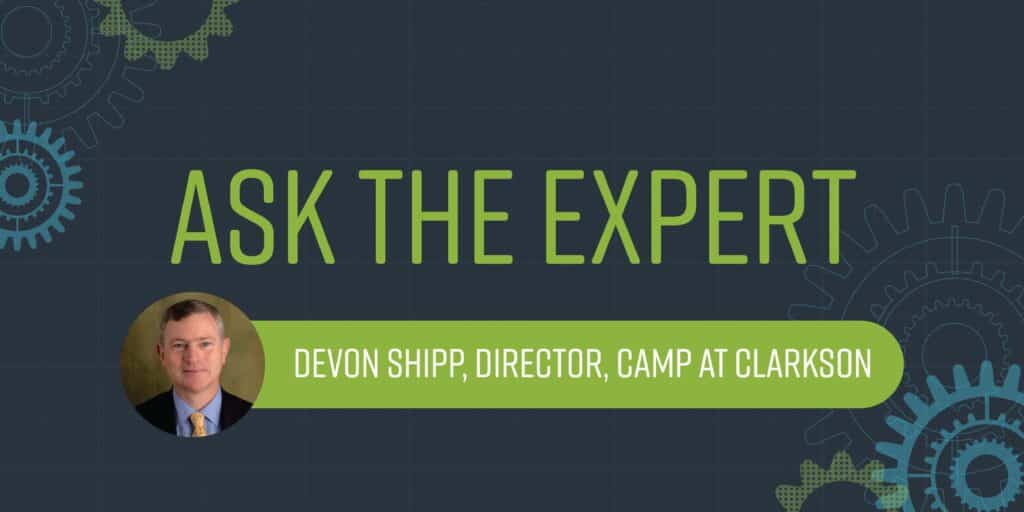For this edition of Ask the Expert we spoke with Devon Shipp, Professor in the Department of Chemistry & Biomolecular Science at Clarkson University and Director of the Center for Advanced Materials Processing (CAMP), a NYSTAR Center for Advanced Technology (CAT).
Tell us about yourself.
I’m from Australia. I earned a Bachelor’s and a Ph.D. from the University of Melbourne and came to the United States to do my postdoctoral work at Carnegie Mellon. My wife and I liked the United States and were excited by the opportunities here. When I interviewed at Clarkson University, I knew it was a place for me. I felt comfortable coming into an interdisciplinary environment and one that was fairly applied in terms of the kinds of research activities that go on here and the level of student engagement. It was an easy choice. That was 24 years ago.
Name three things CAMP has to offer.
One is troubleshooting. Clarkson professors and students can help identify the source of problems a company may be having and navigate potential solutions. Problem-solving is in our blood.
Then there is new product development based on new materials, taking brand new ideas that are just coming out of research at academic institutions and turning them into new products.
Third would be advances in materials processing for environmental sustainability and cleanup. For example, we have several Clarkson faculty working with companies who are looking at materials to filter out or destroy things like PFAS.
What might surprise people?
The number of different materials faculty here work on. We have people who deal with PFAS. We have people who work with plastics. Concrete. Semiconductor devices. We have people trying to understand how to create better welds or how plastics behave in space. That breadth in the knowledge base here is quite surprising.
The other thing is how engaged our grad students are and how often faculty get undergraduate students involved in projects. This allows companies to test drive the students as potential employees. The companies who have our graduate students come in and spend 6 months doing research with them are some of our greatest ambassadors. They highly praise the students and their work ethic and how willing they are to roll up their sleeves and get the job done.
Your focus is on polymers. Explain what you do.
Polymers is really the technical name for plastics. They are just really large molecules, and it’s the size of those molecules that has a significant impact on the plastic’s properties. They make up the adhesive on the back of a Post-it note, the hard casing on your computer or phone, even paper. They are all polymers, but they have different properties because of their molecular composition and the way they’re molecularly connected.
Recently, one project my group has been working on is the development of a novel polyurethane for use in chemical mechanical planarization, a technique used by the semiconductor industry to polish the surface of the chips. Planarization uses polymer pads, and we are working on developing a new type of pad that will eventually lead to fewer gouges and other defects in the chips and therefore reduce waste.
How does CAMP work with other New York State assets?
We’re very connected with each other, so whether it is another CAT or a Center of Excellence (COE), an economic development organization or FuzeHub, we are able to get help for companies who come to us with a need we can’t fulfill.
On the development side, we often work with the local IDA when companies thinking about building a presence in the North Country have a need for materials analysis or development. Often, these companies want to get the lay of the land and understand what resources may be available and where they might find employees. They come and talk to me, our students, and our faculty about how New York can help them put down roots here.
Any final words?
CAMP, with its 35-year history, is always open to working with businesses and getting new partnerships set up. We’re more than willing to take on the biggest or the smallest of challenges when it comes to materials and materials processing. Many people perceive academia as an ivory tower. We’re not that. We’re salt-of-the-earth kind of people who are ready to roll up their sleeves and work.

